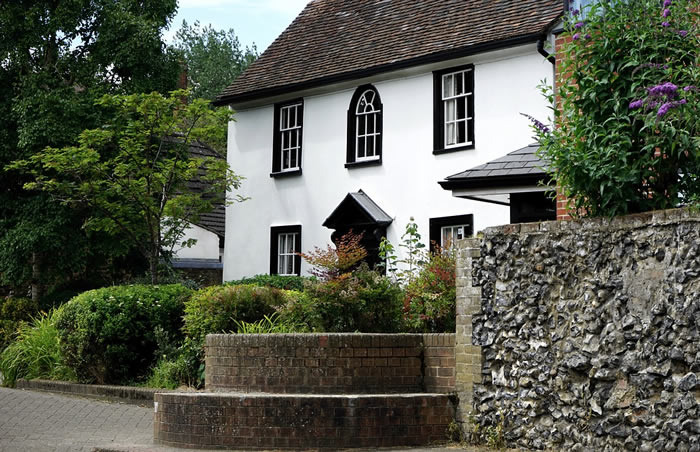Does it pay to Retire Early?
Early retirement is a dream for many people or a dread. It depends on your outlook, financial situation and goals. Some relish the idea of freedom from an employer’s restraints, whilst others love going into work and baulk to think of life without a career routine.
Neither approach is right or wrong. For those who wish to retire early, however, it is important to consider whether it is possible and also what the personal financial implications would be. For some people, they are in the position to plausibly stop working in their 50s, 40s or even earlier if they wanted to. Consulting a financial planner will help you determine, for certain, whether early retirement is a feasible option for you.
However, assuming you could conceivably retire early what are the financial considerations you need to make? In this short guide, we’ll be sharing some important aspects of financial planning for early retirement, which you may want to factor into your thinking.
Please note that this content is for information purposes only and should not be taken as financial advice. To receive said advice, please consult an independent financial adviser such as ours here at Castlegate in Grantham, or a regulated firm in your area.
The State Pension
For most people, their state pension is going to be an important source of income in retirement. Bear in mind that you can only start receiving your state pension once you reach your retirement age, which is generally set to 65 in 2019-20.
If you retire early, therefore, in your early 60s or even younger then you will need to factor this absence of state pension income into your retirement plan. If you retire aged 50, for instance, then it could be another 15 years before you start receiving your state pension.
The new full state pension offers £168.60 a week (or £8,767.20 a year) on the condition that you have accumulated at least 35 years of qualifying National Insurance contributions (NICs). So, also bear in mind that if you retire early and have not yet built up this figure on your record, then you will likely not be entitled to the full state pension when you reach your state pension age.
We recommend that you consult a qualified financial planner to explore how best to integrate your state pension into any possible plans for early retirement. For instance, it might be that you only need a few more years of NICs to qualify for the full state pension. In which case, it might be sensible to defer your early retirement plans slightly to achieve 35 qualifying years. Or, your adviser might recommend that you make voluntary contributions for previous “missed” years, to “complete” your record.
Private & Workplace Pensions
One of the most important rules to be aware of in 2019-20 is that you cannot start drawing money from your personal or workplace pensions until you are at least 55 years old (unless you have an aggressive terminal illness or meet other exceptional circumstances).
Of course, it might be that you have other potential sources of “non-employment income” outside of your pension pots, which you could plausibly use to support your lifestyle leading up to this age (e.g. company shares or rental income). However, once again we recommend discussing your plans with an experienced financial planner to ensure that your plans are viable.
One very important question to ask yourself is how far your pension pots can realistically stretch into the future. Remember, early retirement is likely to mean that these investments will need to support you for an extra two, five, ten years or even more. Besides, these represent years of missing pension contributions which you otherwise would have made to strengthen your pension pot(s) even further.
The key steps to take here with your financial planner, naturally, involve sitting down to forecast what your expenses are likely to be in retirement. From there, you can dissect your likely income under different scenarios (e.g. retiring 5 years early) to see whether this allows you to meet your various commitments.
If your income does not cover your projected outgoings then you will likely need to push back your planned retirement date. Conversely, analyses like these might reveal that your pension pot(s) stretch further than you originally thought. In which case, perhaps you could retire even earlier if you wanted to.
Another implication of early retirement worth mentioning is your “Annual Allowance”. Bear in mind that for most people in the UK, you are allowed to contribute up to £40,000 each year, tax-free, towards your pension (or up to 100% of your salary; whichever is lower). Once you start taking taxable withdrawals from your pension pot, however, this allowance dramatically reduces to £4,000 under the Money Purchase Annual Allowance rules.
So, if you are planning to retire early but also continue making pension contributions, it will be important to seek professional financial advice to ensure you are not falling into any common tax pitfalls such as this.
Final Thoughts
Early retirement can be an exciting and noble goal for those who desire it, and who are in the position of being able to realistically aim for it. However, there are many important rules about tax, pensions and investments which you need to be aware of well ahead of time, to ensure you do not make any mistakes which might cost you dearly later.
The worst outcome you want to avoid, of course, is the possibility of running out of money in retirement because your pension, assets and other income didn’t stretch as far as you thought they would. Here at Castlegate, our financial planners can offer independent advice and insight on these matters to help ensure you make smart decisions with your money, based on sound information. Get in touch today to arrange an initial exploratory consultation at our expense with one of our specialists here at Castlegate via 01476 591022 or info@casfin.co.uk.












